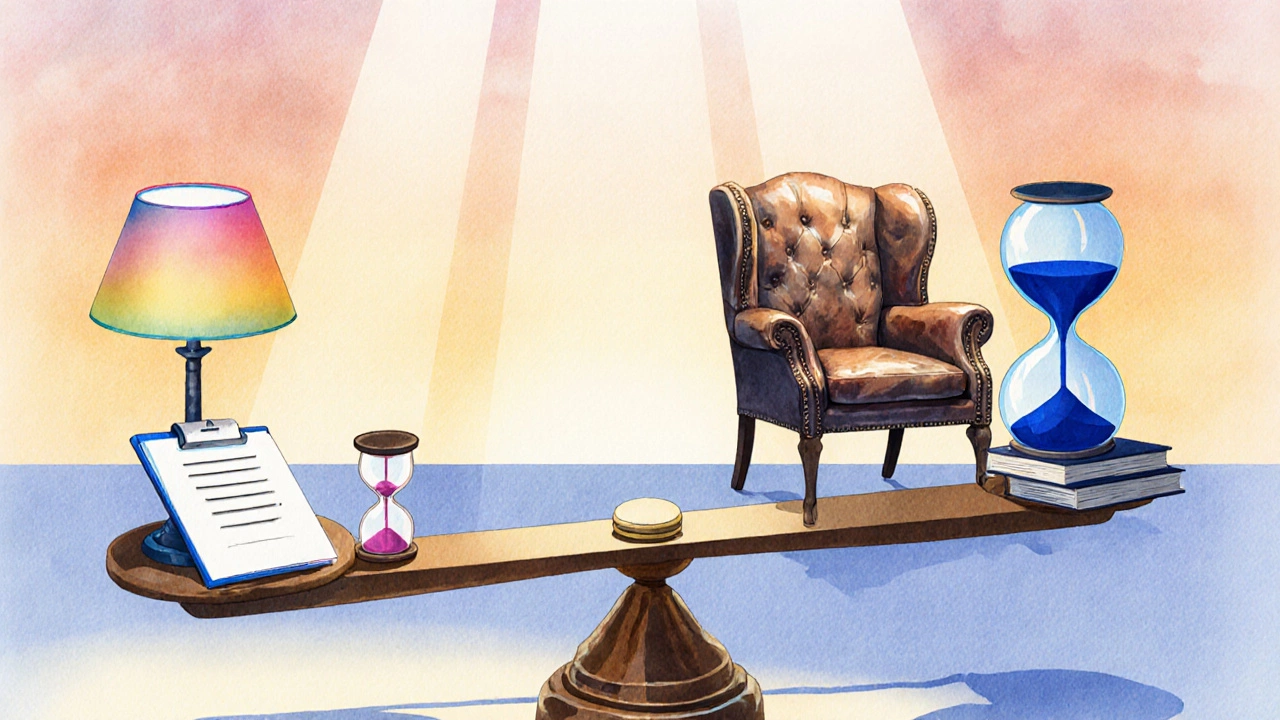Psychotherapy: Understanding Its Role, Types, and How Long It Takes
When talking about psychotherapy, a structured conversation between a trained professional and a client aimed at improving mental well‑being. Also known as talk therapy, it can include mental health therapy, any therapeutic process that addresses emotional, psychological, or behavioral issues and often involves counseling, short‑term guidance focused on specific problems or life decisions. One of the most common sub‑approaches is cognitive behavioral therapy, a goal‑oriented method that links thoughts, feelings, and actions. Together these entities form a network where psychotherapy encompasses various methods, mental health therapy provides the broader umbrella, counseling adds focused support, and cognitive behavioral therapy influences outcomes by reshaping thought patterns.
Key Factors that Shape Psychotherapy
How long will psychotherapy last? The answer depends on three main attributes: the client’s goals, the chosen therapeutic model, and the severity of the issue. A brief, solution‑focused counseling stint may wrap up in 6‑8 sessions, while deep‑seated trauma work using cognitive behavioral therapy can stretch to 12‑20 weeks or more. Frequency also matters; weekly meetings are standard, but intensive formats offer twice‑weekly or even daily sessions for quicker progress. Insurance coverage and therapist availability often set practical limits, but the most reliable predictor is the client’s commitment to practicing skills outside the session.
Recognizing early warning signs of deteriorating mental health can shorten the therapy timeline. Common indicators include persistent low mood, loss of interest in daily activities, sleep disturbances, and difficulty concentrating. When these symptoms appear together, they signal the brain’s coping mechanisms are overloaded. Prompt self‑monitoring or a brief counseling check‑in can prevent escalation, making the subsequent psychotherapy more focused and efficient.
Choosing the right therapist is another vital piece of the puzzle. Look for credentials such as a registered clinical psychologist, licensed mental health counselor, or certified cognitive behavioral therapist. Compatibility matters: a therapist who respects cultural background, language preferences, and personal values will foster a stronger therapeutic alliance, which research shows correlates with better outcomes. Many professionals now blend evidence‑based techniques with complementary practices, offering a personalized plan that aligns with the client’s lifestyle.
Below you’ll find a curated selection of articles that dive deeper into each of these areas. From practical breakfast guides for dosha balance to detailed timelines for mental health therapy, the collection provides actionable advice you can apply right away. Whether you’re curious about how long therapy should last, how to spot early mental‑health warning signs, or which therapeutic approach fits your needs, these resources will help you make informed decisions and take the next step toward well‑being.





